The Phlebotomist Profession: a direct connection to health care
I have always believed that innovation goes beyond technological devices: it is also present in the hands of professionals who perform tasks that have a major impact on the health of each patient. This is the case of the phlebotomist, responsible for collecting blood for tests and clinical analyses. I have seen first-hand how much this activity, even with so many technological advances, still requires human care, technical mastery and an empathetic approach.
What does a phlebotomist do?
Phlebotomists are dedicated to collecting blood accurately, following biosafety, hygiene and labeling standards. It may seem like a routine task, but each step needs to be carried out with great care, as possible errors can compromise the entire diagnostic process. During my visits to hospitals and laboratories, I realize how much these professionals need not only technical skills, but also a lot of calm to deal with patients who arrive apprehensive or afraid of needles.
Work routine
In their daily lives, phlebotomists face a variety of scenarios: newborns, the elderly, chronic patients and even people in emergency situations. In some cases, I see the importance of specific techniques, such as the use of vacuum collection devices or even smart solutions that speed up sample registration. However, regardless of the technology adopted, the way the patient is welcomed makes all the difference, as a safe and caring environment reduces stress and makes the procedure smoother.
How to start your career
For those who want to enter this field, institutions usually require technical training in Nursing or Clinical Analysis, which includes practice in blood collection. There are also specific courses and certifications in phlebotomy, something I often see in partnerships between laboratories and technical schools. This basis ensures that the professional masters not only the practical part, but also the biosafety protocols and risk management — skills that I consider crucial in the context of constant evolution in healthcare.
Areas of activity
- Hospitals and clinics: Collecting samples in areas such as emergency rooms, wards and ICUs.
- Clinical analysis laboratories: Responsible for the collection and initial processing of samples.
- Blood banks: Actively participating in donation programs.
- Home care: Carrying out collections at the homes of patients with reduced mobility or who opt for comfort and practicality.
- Research Centers: Contributing to clinical studies that require frequent samples.
Salary range and outlook
My experience in managing innovation projects shows that salaries vary according to the location and type of institution, but they usually range from R$1,500 to R$3,000, with the possibility of higher salaries for those who invest in specializations and constant updates. The health area, in general, is undergoing continuous expansion, and the need for faster diagnoses reinforces the importance of a good phlebotomist.
Why invest in this career?
Increasingly, I see institutions interested in professionals who combine technique with empathetic care. Phlebotomy, in itself, opens doors for those who have an affinity for detailed processes and direct contact with people. In the conversations I have with healthcare teams, it is clear that a well-trained phlebotomist makes all the difference — not only in the quality of the samples, but also in the satisfaction of the patient, who feels welcomed. Especially in times of constant innovation, it is comforting to note that there are areas in which the human component remains indispensable, bringing opportunities for growth, professional recognition and the satisfaction of actively contributing to healthcare.
Did you like the content? There is a lot more information on our blog!
Innovation and Technology Manager | Greiner Bio-One Service Tech

